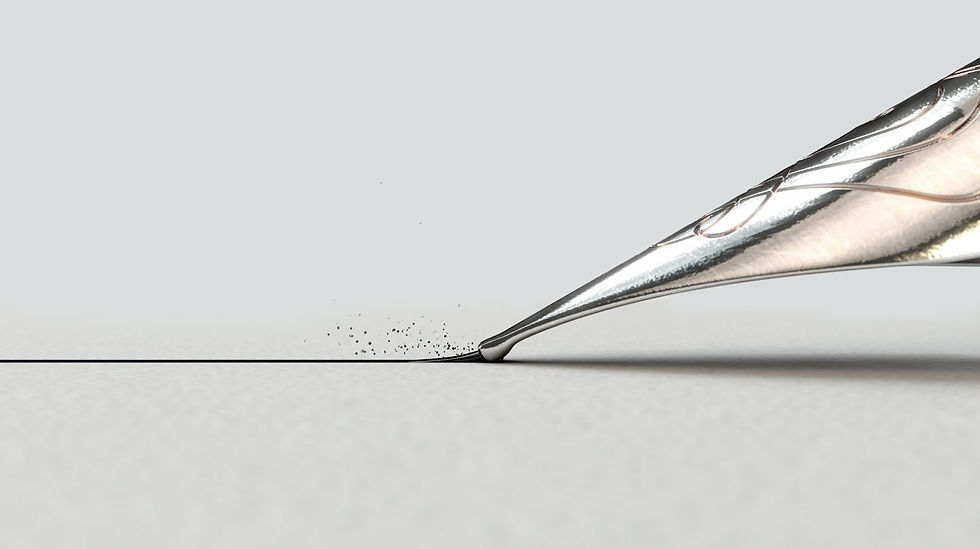Minimalism according to my grandmother
- Otium Blog

- 20 avr. 2020
- 2 min de lecture
Dernière mise à jour : 13 sept. 2021

We spend our lives running behind objects; to have a nice car, a beautiful house, buy such clothes or such sneakers and make our children happy by offering them such and such toys. We accumulate, accumulate, until we become buried by the things we stock.
As we accumulate, we find ourselves cramped; we lack of space, suffocate and feel that our house is too small, that we have to buy a bigger one to be able to store our "things".
If instead of buying a bigger house and of spending our life running after material, we decide to get rid of everything that is not essential to our life. We will find a more pleasant, lighter space and our mind will feel more fluid and light.
This simple, not superfluous life now has a name: minimalism.
The concept popularized by Asians is older than the name itself, but today I decided not to go into definitions of minimalism. I rather want to tell you the little story of my grandmother who did not know the existence of the word minimalism, but who was a typical example of this way of life.
You may say: "But your grandmother must have lived a forced minimalism, closer to precariousness than to a chosen and assumed way of life." Yes, the village where my grandmother lived was not rich, and yes, many people lived in precariousness, but my grandmother had the financial means to live in more opulence than what she chose to live.
First, understand that my grandmother was a bit of a manic kind, she couldn't stand mess or dirt. She used to go to the fountain of the village to get water, and when arrived there, she used to take time to clean the basin and all the surroundings before filling up her jerry cans. The evil tongues, who were rather overworked mothers of large families, could not afford to give in to the whims of Fatma the eccentric who refused to comply with the unkempt everyday life of the village. Fatma was therefore entitled to the vociferation of some women and whispers of some others.
In addition to her big love for cleanliness, the eccentric Fatma used to refuse to buy what was not necessary to her and preferred to strip her house of all superfluous. Her living space was clean, uncluttered and of simple and elegant beauty.
She was a pure minimalist who refused to conform to the normality of her time. She was in my opinion very healthy and mentally peaceful, and I cannot help thinking that her philosophical choice of simple and orderly life has something to do with that.
After this nostalgic parenthesis on my grandmother, I suggest to you this song I love above all, by Allain Souchon. It denounces our superficial materialistic society and joins my idea of minimalism.
Hello my name is Kika

Written by Malika BELHIS-TURPAIN


Hi!
We transform life into a race for riches. J.J.Goldman was singing "I pray sings and sings took me", that's true. (clip >>here<<).
Thank for your granmother 's story: people like her help us to deliver ourselves.
Mohamed
Hello Malika,
I agree with you, our modern way to accumulate capital is depressing us. We work harder in order to satisfy needs that are more and more numerous. I will try to follow your advice and to enjoy simpler pleasures.
Dan Bot
Hey Kika! I definitely like this state of mind... The consumer society is a real scourge and the story about your grand mother is a real piece of wisdom.
Instead of overburdening ourselves, we should lighten up. We should really take the problem upside down and see the half full glass instead of the half empty one! Otherwise, it's the snake that bites its own tail, as they say in French...
Besides, when we lighten up, we spend less, and have less to maintain. It's a virtuous circle and a kind of optimization!
I have been on the road of buddhism and minimalism since I am 17. And I can say that I admire your grandmother, it is for me a very long road composed of back and forth movement...
Thank you for your post Malika!
Minimalism is a topic I got interested to a few years ago. And it sure is about material things but it also extends to relationships, hobbies, … That’s what I really like about it. It’s not about an aesthetic but it’s rather about a state of mind. It’s crazy to see how your grandmother was treated then, and how minimalism and tidiness is trendy nowadays. Sometimes, people who choose to have the less are the richest since they truly choose what to fill their life, house and heads with. So they tend to get only things that are useful, that bring happiness and are meaningful to them. I guess it was your grandmother’s case.…